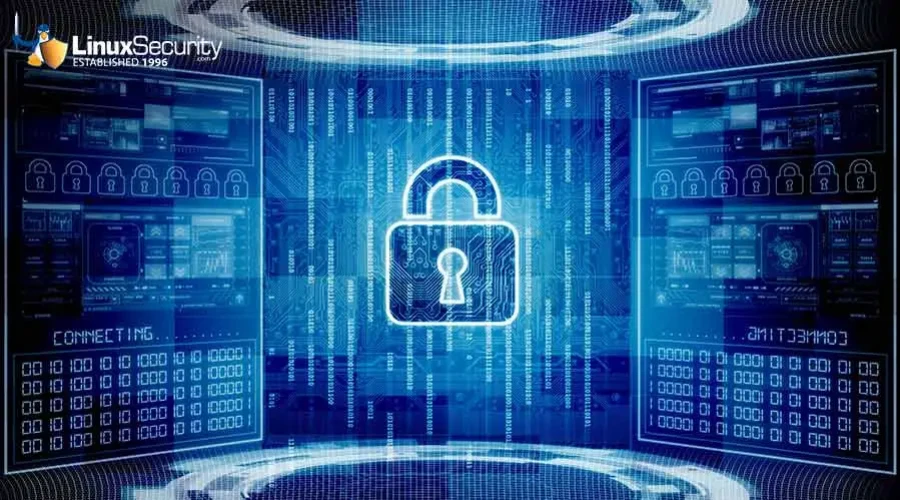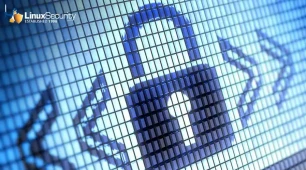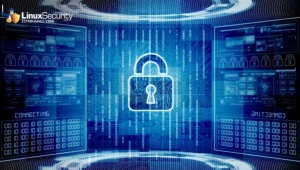
Security is one of the most critical factors considered when choosing an OS. General expert consensus says that Linux is the most secure OS by design, an impressive feat that can be attributed to its variety of characteristics, including transparent, open-source code, strict user privilege model, diversity, built-in kernel security defenses, and application security. The high level of security, customization, compatibility, and cost-efficiency that Linux offers makes it a popular choice among businesses and organizations looking to secure valuable data. Linux has already been adopted by governments and tech giants around the world, including IBM, Google, and Amazon, and it currently powers 97% of the top one million domains in the world. All of today’s most popular programming languages were first developed on Linux and can now run on any OS. In this sense, we’re all using Linux whether we know it or not.
This article will examine why Linux is arguably the best choice for businesses looking for a flexible, cost-efficient, exceptionally secure OS. To help you weigh your options, we will go into detail on Linux so you understand their privacy-enhancing technology and how they combat all kinds of cyber security vulnerabilities that could lead to attacks in network security. We will also compare the differences between Linux and Windows for your consideration in deciding where to get started.
What Is The Open-Source Advantage?
Because Linux is an open-source OS, the security it offers is greatly enhanced by the involvement and support the open-source community provides. Linux source code undergoes ongoing, thorough review by passionate user-developers worldwide who are deeply invested in their work both for their own benefit and for the benefit of the community. As a result of this scrutiny, Linux cyber security vulnerabilities are generally identified and eliminated very rapidly, often before attackers even have the chance to use those exploits in cyber security to their advantage. As of August 2020, Linux has over 20,000 contributors and one million commits. Google and The Linux Foundation announced they are funding a pair of top Linux kernel developers to focus on security. This demonstrates that even some of the biggest, most influential members of open-source communities are highly dedicated to Linux data and network security.
Superior Security through Strict User Privileges
Linux greatly restricts root access through a strict user privilege model, where a superuser has all privileges and ordinary users only have permission to access whatever they need to accomplish their tasks. Because Linux users have low automatic access rights and require additional permissions to open attachments, access files, or adjust kernel options, it is more difficult to spread malware and rootkits on a Linux system than on a system running another OS.
Although it is possible to implement least-privilege administration models on Windows systems, organizations rarely take this precaution, and, in reality, “everyone is an admin” on most Windows systems. As a result, attacks in network security can more easily spread malware and viruses on Windows systems than on Linux servers.
Security through Diversity
There is a wide selection of distributions (distros) available to Linux users that feature different system architectures and components. The high diversity levels within Linux environments satisfy user needs and deter attackers from targeting Linux systems, as exploits in cyber security are incredibly difficult to achieve among various Linux servers since they are customized to a business’ needs.
Although Linux is regarded as a highly secure OS, various specialized secure Linux distros exist for individuals with advanced security and privacy concerns, such as pentesters, reverse engineers, and security researchers. These distros place an intense focus on protecting the user’s privacy and anonymity online.
Linux Kernel Security
The Linux kernel offers some excellent built-in security defenses, including the UEFI Secure Boot firmware verification mechanism, the Linux Kernel Lockdown configuration option, and the SELinux or AppArmor Mandatory Access Control (MAC) security enhancement systems. By practicing Linux kernel self-protection by enabling these features and configuring them to provide the highest level of data and network security, administrators can add a valuable layer of safety to their systems.
There are far more configuration options on Linux than on Windows, many of which can be used to enhance security. For instance, Linux Kernel Lockdown is a configuration option that prevents the root account from modifying the kernel code by strengthening the divide between userland processes and kernel code. In the event that a root account is compromised, having Lockdown mode enabled will make it far more difficult for an attacker to compromise the rest of the OS.
 Lockdown has two modes: integrity mode and confidentiality mode. Enabling Lockdown in integrity mode will block kernel features that allow user space to modify the running kernel, while enabling lockdown in confidentiality mode will block user space from extracting sensitive information from the running kernel. Using integrity mode is the best choice, as confidentiality mode is truly only needed for special systems with sensitive information that the root account should not be allowed to access regularly. Confidentiality mode blocks access to all kernel memory, preventing administrators from being able to inspect and probe the kernel for troubleshooting, development, and testing purposes. Regardless, this privacy-enhancing technology makes Linux all the more secure for users.
Lockdown has two modes: integrity mode and confidentiality mode. Enabling Lockdown in integrity mode will block kernel features that allow user space to modify the running kernel, while enabling lockdown in confidentiality mode will block user space from extracting sensitive information from the running kernel. Using integrity mode is the best choice, as confidentiality mode is truly only needed for special systems with sensitive information that the root account should not be allowed to access regularly. Confidentiality mode blocks access to all kernel memory, preventing administrators from being able to inspect and probe the kernel for troubleshooting, development, and testing purposes. Regardless, this privacy-enhancing technology makes Linux all the more secure for users.
SELinux and AppArmor are two security enhancement systems that can be used to lock down Linux systems with MAC security policies, offering administrators granular control over the security of their systems so they can protect against server misconfigurations, software cyber security vulnerabilities, and zero-day exploits that could potentially compromise an entire system. Smack, or Simplified Mandatory Access Control Kernel, provides another means of implementing MAC policies on Linux. These simple Linux security modules for kernels secure data and process malicious manipulation using a set of custom mandatory access control rules.
Although there are fewer MAC options on Windows, the OS does offer Mandatory Integrity Control (MIC) as a mechanism for controlling access to securable objects in addition to discretionary access control. MIC uses integrity levels and mandatory policy to evaluate access against an object’s Discretionary Access Control List (DACL).
Secure, Cost-Efficient Hosting
Linux hosting has gained immense popularity among resellers due to the high data and network security levels, cost-efficiency, compatibility, and customization that the OS offers. Linux is free, and Linux web-hosting service providers do not bear any subscription charges or per-user license fees as they would with Windows, a benefit that carries over to the consumer. Linux supports the majority of key programming languages used worldwide, including Python, MySQL, PHP, Ruby, and Perl. It is ideal for dynamic websites that experience heavy data traffic, such as online shopping, ticketing, or healthcare provider websites. Linux hosting also delivers a user-friendly network security toolkit absent in Windows hosts called cPanel, which assists in website management and maintenance. These benefits have created great demand for Linux reseller hosting.
How Does Windows Security Compare?

Due to its immense user base, “hidden” source code, and homogeneous monoculture, Windows OS is a far more attractive target for attacks in network security. Although Linux malware breaches have become more frequent in recent years, Linux is still a relatively small target, with 96% of new malware targeting Windows in 2022.
Microsoft has traditionally employed a method known as “security through obscurity” in an attempt to secure Windows source code. In this approach, source code is hidden from outsiders in an attempt to conceal cyber security vulnerabilities from malicious actors. While this may initially sound like a good idea when put to use, this obscure data and network security negatively impact businesses by preventing outsiders from reviewing the source code to report flaws before they are discovered and exploited by cybercriminals. When it comes to finding security bugs, the team of Microsoft developers responsible for reviewing Windows source code is certainly no match for the “many eyes” of the global open-source community backing Linux.
That’s not to say that Microsoft doesn’t recognize the inherent benefits of Linux and the open-source development model it is based upon. With services such as Windows Subsystem for Linux v2 (WSL2) and Azure Sphere, Microsoft is a Linux distributor. Linux developers have acknowledged the tech giant’s growing commitment to Linux security and have admitted Microsoft’s Linux developers to the closed linux-distro list. However, Windows on its own may not be the best choice to guarantee safety for your company.
Final Thoughts on Linux vs. Windows for Businesses
Choosing Linux over Windows equips businesses with a secure foundation on which to build their digital security strategy. Linux has security built into its design, and its relatively small user base makes it a minimal target for any exploits in cyber security that may head its way.
While your OS is the most critical software running on your computer, and selecting a secure OS is a great start to help your business improve security posture, you must keep in mind that the OS alone does not safeguard your users, data, and reputation. Security is all about defense in depth, and the security of your networks and servers is greatly impacted by server administration, employee behavior, and your server’s environment. Linux servers must be properly configured, monitored, maintained, and run in a secure environment. Safe online behavior and general data and network security practices can be incredibly valuable to keeping your server protected.
Bear in mind that security is all about tradeoffs between security and usability and/or user-friendliness. Administrators should configure their systems to be as secure as is practical within their environment. In regards to convenience, Linux has a bit of a learning curve compared to Windows but offers significant security advantages that will make it all worth it.
The bottom line: Are you looking to improve your business’s digital security? If so, choosing Linux is an excellent start.




















